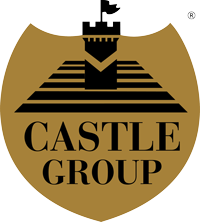How Can Transitioning from Self-Management to Professional Management Better Your Community?
February 27, 2020

There are several factors that lead community associations to stay self-managed. With decades of experience in transitioning self-managed communities into professionally managed communities, we have been able to identify these key factors and map out some of the downsides of staying self-managed along with the pros of switching to professional management.
Why are self-managed community associations hesitant to switch to professional management?
- Self-managed communities are often wary of change.
- Self-managed communities are often concerned about maintaining authority.
- Self-managed communities often think that by keeping their management in-house they are saving money.
What are the downsides of staying self-managed?
In self-managed communities, it is more common that associations fall victim to lawsuits or penalties for unfair, incorrect, or late handling of resident issues. When a professional management company is involved, the liability no longer rests solely on the board members’ shoulders and they are supported by an organization with experience, resources, and experts dedicated to solving these problems. Board members of self-managed communities are also solely responsible for handling escalated resident concerns, which can lead to unpleasant disagreements and rifts between neighbors.
Self-managed communities often miss out on the industry knowledge associated with managing multiple similar communities. With a professional management company, utilizing this resource can prove to be extremely useful. In terms of HOA and Condo management, if you are a member of a community board and your management company manages another community that is similar in size and features, your professional management company can compare the costs of services between the two communities and benchmark these expenses for cost control.
What are the pros of switching to professional management?
In a professionally managed community, authority always lies in the hands of board members. Professional management takes the legwork out of managing the community and leaves the decision making to the board. This allows the HOA board member or condo board member role to stop being a full-time job and be as it was originally intended: a volunteer position.
Staffing is an important concern for self-managed communities when considering changing to professional management. “Will we be able to keep the staff members we like if we switch to professional management?” is one of the most common questions we receive from self-managed communities. If your staff is working for your community and doing a great job, then you do not necessarily have to change when transitioning to professional management. Moreover, your new professional management company can provide these employees with resources, additional support, and an enhanced benefits package making them happier and more likely to stay with your community.
Lastly, a professional management company can save a community an exponential amount of money by providing the services that would normally need to be outsourced by a self-managed community. Software and IT support can be provided by the professional management company. At Castle, our Accounting experts take care of the community financials so that the Board no longer has to be concerned with outsourcing the work or handling it themselves.
For self-managed community board members, a professional management company can take the burden off of your shoulders and give you the opportunity to focus on governing your community. This change may seem difficult at first thought, but in the long run, your community will have access to a wealth of expertise, experience, and resources, making it an exceptional place that residents will look forward to coming home to.
Tags:
self managed community, self managed condo, self managed hoa, transitioning from self management

